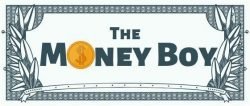
If you’re anything like me, recent events have left you looking for frugal ways to mitigate the current crisis.
With many people being forced to work from home, close their businesses, take pay cuts, or even lose their jobs, money continues to be at the top of the priority list.
People all around the world are spending less money, whether that be on restaurants, entertainment, vacations, or commutes.
While these are definitely big ways to save some extra cash, there are also smaller steps you can take to make a big difference in decreasing your monthly expenses.
Here are just some of the frugal tips I have adopted throughout this crisis to help me get by on a much smaller budget.
Frugal Ways to Save Money at Home in a Recession
Curb Temptations to Buy Stuff Online
With most of us stuck at home on a daily basis, it’s safe to say boredom has significantly increased, along with our screen time.
My own screen time report has shot up an embarrassing amount recently, causing me to rethink my priorities.
Unfortunately for a lot of people, this boredom often leads to unplanned purchases. Scrolling the web aimlessly leaves you vulnerable to personalized ads, specifically tailored to draw you in.
Before you hit purchase on those questionable items, take a second to think, “Do I really need this, or am I just bored?”
A trick I like to play on myself sometimes is to put all the items I like into my cart, and then let it sit for 24 hours (72 hours works even better!).
When you come back around the next day, you will often find you don’t really need all the items you stacked up while in the daze of boredom.
Cancel Cable TV and other Subscriptions or Memberships
One of the easiest ways to lose money is to subscriptions services you have forgotten about or no longer use.
Or if not forgotten, you have had them for so long that they seem to be a part of your life now. For most people, that means a loss of approximately $350 a year, according to this article.
While it may be impossible to rid your life of all subscriptions, there are definitely some that are not pulling their own weight in the deliverables category.
Subscriptions to magazines you don’t ever read, beauty and fashion boxes that sit in your closets, and the variety of music platforms (with the same music available) are just a few examples of subscriptions that can probably be done away with, at least until you are on a less constrained budget.
Other subscriptions, such as the monthly cable bill, can be substituted by any of the much cheaper options, such as Netflix, Hulu, or Disney+.
If you pay for an Amazon Prime account, you may be missing out on a huge selection of entertainment already available to you through Amazon Prime Video.
Take a look through your email and bank account to find those monthly subscription fees that may seem small on their own, but add up to hundreds of dollars throughout the year.
Join a Family Plan
When I initially switched from an individual cell-service plan to a family plan, I couldn’t believe the difference in what I was paying.
For an individual plan, I was paying approximately $75 dollars a month; after switching to a family plan, I am now paying around $20 for the same quality of service and amount of data. That adds up to a savings of more than $650 a year. That is crazy!
If you do not have a family who is interested in joining a plan with you, gather up some friends and start your own!
The term “family plan” simply refers to a plan that is shared amongst a group of people. The plan I am currently a part of has one individual who pays the bill every month, and the rest of the members will pay their share using a money-sending app.
Only Buy What You Need
This one may seem obvious, but sometimes it still needs to be said. Considering the crisis we are in at the moment, it is especially important to really distinguish between what is a “want” and what is a “need.”
Remember, these steps are about being frugal, so we are striving for ways to be as sparing and economical as possible.
This may mean cutting down the shopping list to just the essentials. Whatever that may mean for you and your family, be it food, clothing, or entertainment, try your best to go without the extra purchases for the time being.
While this may cut down on your quality of life temporarily, it is crucial to have enough money in your budget for the necessities (e.i. rent, bills, groceries).
Remind yourself that, for most of us, this is temporary. There may not be an end in sight at the moment, but life will slowly return to some kind of normal.
With the return of normal comes the return of being able to buy “wants” along with your “needs.”
Buy Staples in Bulk
Once you have figured out what you need to get by on a daily basis, see if you are able to purchase any of those items in bulk. Whether it be at wholesale clubs like Costco or online, try to get a hold of your items in large quantities.
Most of the time, you will save a significant amount of money by buying in bulk, as it allows you to avoid unnecessary charges and theoretically cuts out the “middle-man.”
I say most, as I would still recommend doing the leg-work work of comparing prices side-by-side to guarantee that you are, in fact, receiving a deal.
Some items you can switch to buying wholesale are your everyday toiletries, hygiene products, and pantry items.
Any items that do not spoil are prime examples of items you can stock up on by purchasing in bulk. Just remember to make sure you have enough room to store them first!
Cook Your Own Food
In all honesty, this is a tip I started implementing long before the current crisis. There was a year in my early twenties where I would eat out at least once a day, sometimes twice a day, dwindling away my paycheck little by little.
Even though the purchases were not large, continuous purchases here and there add up so much quicker than you think.
Since I have started cooking at home, it has become so much simpler to budget my food money for groceries, with the occasional purchase of a meal outside the home.
Not only am I saving thousands of dollars each month, the times that I do go out to eat now feel more rewarding and special.
Because I have found a love for cooking, here are some tips to start trying out during the current crisis to save you some money.
Not only will they help you live a more frugal lifestyle now, they will hopefully build easy frugal habits that will stay with you well into the future.
Plan your meals ahead of time
One of the simplest ways to save money when cooking at home is to plan your weekly meals ahead of time.
Try to find recipes that will use similar ingredients, so as to minimize your waste. For example, buying a head of lettuce for one meal may leave you with a lot of lettuce if only used for Monday nights dinner.
If you plan to use lettuce in at least 3 meals that week, you will most likely use up the whole head of lettuce, maximizing your money spent.
Try new recipes
Cooking at home can be fun, but it can also get boring really quickly if you make the same meal over and over again. With the internet at your fingertips, your choices of recipes are literally endless!
New recipes and flavors will keep your palate from tiring of home-cooked meals, increasing your chances of a successful restraint from ordering to-go.
This might also be the perfect time to try and make your favorite restaurant dish at a much cheaper price!
Make large batches
When you do find go-to meals that satisfy your cravings, try to make them in large batches.
Having left-overs for a few days will stretch your dollar to its max and also cut down on your efforts in the kitchen.
This works particularly well if you have a few busy days coming up and you know you will not have the time and energy to cook.
Freeze Perishables
When trying to save money, the freezer can be your best friend. Even with a tiny freezer like mine, using it to its full potential will save you some serious cash.
Certain foods, like vegetables, bread, meat, soup, and fruit freeze surprisingly well for long periods of time, extending their freshness by months. For best freezer-packaging practices, check out this article.
Give Baking a Go
While not necessarily considered “cooking,” baking has become a favorite hobby of many people, especially during the current crisis.
If you are able to get your hands on flour, sugar, or yeast (rare these days!), I would recommend giving some simple recipes a try.
Simple baking does not require fancy ingredients or expensive equipment, thus making it a very affordable hobby.
Not only is baking a fun activity to do both yourself, as well as with friends and family, but you are left with a rather tasty finished product!
If you are going to bake anything, I 100% recommend this chocolate chip cookie recipe I found. Best cookies I have ever tried!!
Start a Garden
With grocery stores constantly running out of fresh food, it doesn’t hurt to start your own garden!
While there are some initial costs (i.e. soil, pots, seeds, starter plants), gardening can be an extremely relaxing way to spend your extra time during social distancing.
Whether you have a home with ample yard space or a small apartment with a barely-there balcony, there is a garden that will fit your needs.
Look into the fruits, vegetables, and herbs that grow well in your particular area’s climates.
Also, a fun and cost-effective activity is to replant the roots, seeds, or chopped ends of vegetables, fruits, and herbs that you have bought and see what grows back!
Switch to Reusable
Along with reusing your kitchen scraps to start a garden, think of other items in your household that you may be able to reuse.
Bottles, bags, boxes are some of the most common items we use once and quickly throw away. Not only is this very wasteful and expensive, it is extremely harmful for the environment.
There are so many options on the market right now for sustainable, reusable, eco-friendly version of everyday items. Most of them will be a one-time purchase and will last significantly longer than their disposable counterparts.
If you are like me and don’t have the extra cash to switch fully to these reusable items at the moment, try to reuse your current items as much as possible!
Anything that can be washed, like plastic storage bags or cloth towels (opposed to paper towels), can easily have their use-lives extended to serve your needs and save you money.
Final Thoughts
At this point in time, nobody is sure of when life will get back to any semblance of “normal.” With questions of our futures constantly filling our minds, it does not hurt to take precautions and adopt a few new frugal habits that could help you save money in your daily life.
Not only are these tips simple enough to try out, you may find yourself with new, healthy habits that bring you peace in a time of great uncertainty. Give it a go and remember, we are all in this together!

![How to Lower College Tuition [11 Clever Ways] How to Lower College Tuition [11 Clever Ways]](/wp-content/uploads/2020/04/how-to-lower-college-tuition-costs-1.jpg)
